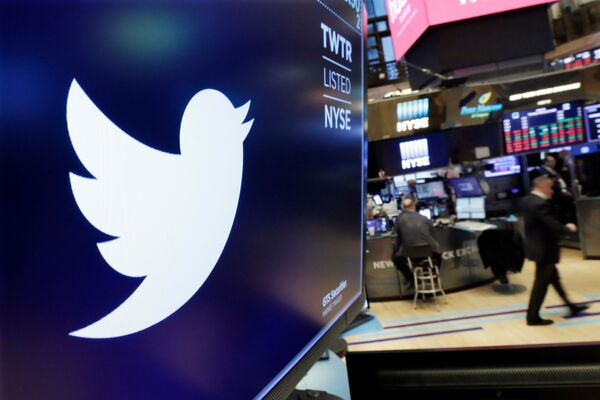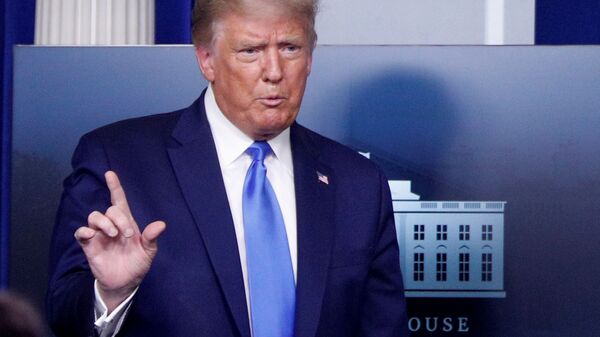The Department of Justice and US President Donald Trump unveiled a new package of reforms on Wednesday set to curb the social media firms’ alleged ability to act as publishers by censoring certain content on their platform - something, he said, that was dictated by “the radical Left”.
“In recent years, small groups of powerful technology platforms have tightened their grip over… communications in America. They’ve used this power to engage in unscrupulous business practices while waging war on free enterprise and free expression,” the President said during roundtable talks with Attorney General William Barr and other prominent Republicans.
President @realDonaldTrump on social media bias: At the urging of the Radical Left, these social media platforms have become intolerant of diverse political views pic.twitter.com/h5nc3pWaMW
— Team Trump (Text VOTE to 88022) (@TeamTrump) September 23, 2020
“At the urging of the radical Left, these platforms have become intolerant of diverse political views and abusive toward their own users… as abusive as you could possibly be in some cases,” POTUS argued.
Trump also reiterated his early attacks on Twitter, which he said was silencing “conservative views... even from a President of the United States”. The company has indeed flagged several of Trump’s tweets – particularly those related to mail-in ballots voting. In the past few years, both Twitter and Facebook banned the accounts of several conservative speakers, including James Woods, Louis Farrakhan and Alex Jones.
These skirmishes with social media platforms prompted the President to sign an executive order in May, which was set to change Section 230 of the Communications Decency Act, dubbed “a backbone of the internet”. The section asserted that “no provider or user of an interactive computer service shall be treated as the publisher or speaker of any information provided by another information content provider,” meaning that social media platforms should not be held legally responsible for users’ messages.

Trump insisted that the companies were still effectively acting as publishers in relation to conservative voices and referred to Twitter’s actions at that time as “editorial decisions”. He thus assumed that the section should be altered for the sake of “free speech” to prevent “online censorship”.
“It is the policy of the United States that the scope of that immunity should be clarified: the immunity should not extend beyond its text and purpose to provide protection for those who purport to provide users a forum for free and open speech, but in reality use their power over a vital means of communication to engage in deceptive or pretextual actions stifling free and open debate by censoring certain viewpoints,” his executive order said back in May.
The newly proposed reforms are set to continue this trend, by urging tech giants to make their terms of service more strictly defined and not enforced selectively on certain users. Platforms would also be prevented from blocking access to materials from other social services – unless they are “objectively” deemed dangerous. Meanwhile, vaguely defined “objectionable” content is not going to be anymore protected by the liability shield specified by Section 230.
Social media services will also be prohibited from restricting access based on “deceptive or pretextual grounds” and instead “supply the provider of the material with timely notice describing with particularity the provider’s reasonable factual basis for the restriction of access”, while giving them “a meaningful opportunity to respond” – except if the content in question is related to terrorism or some criminal activity.
As Facebook and Twitter currently continue to deflect attacks from politicians from both ends of the political spectrum, the DOJ’s proposals were not strongly welcomed by some of the President’s critics.



